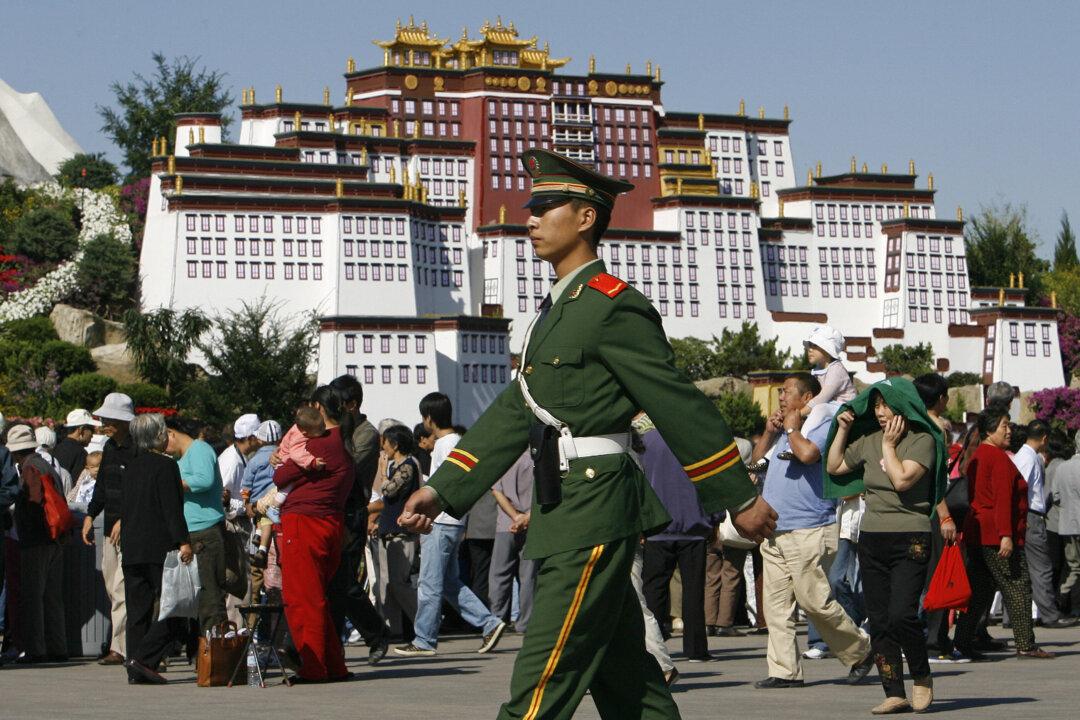Communist China and the Group of Seven (G7) nations are oil and water: communist versus capitalist (some of them tipping toward socialism), mercantilist versus free-market, and intellectual property thieves versus intellectual property protectionists.
For several decades, the West—including international institutions such as the International Monetary Fund and World Bank, along with multinational investors—has funded China’s economic growth with the expectation that the Chinese Communist Party (CCP) would ameliorate its belligerence on the world scene, curtail its persecution of minority groups, theft of technology and military secrets, and use of unfair trade practices aimed at capturing overseas markets.
As part of its ongoing information warfare campaign, Beijing periodically condemns commonsense statements by the G7 whenever these types of communist underhandedness are exposed.
The Group of Seven
The G7 is an intergovernmental organization comprising the largest developed economies globally—France, Germany, Italy, Japan, the United States, the United Kingdom, and Canada.The G7 leaders meet periodically to discuss international economic and monetary issues, with the group’s presidency rotating among the members. The leaders have previously addressed critical issues such as debt crises, oil embargoes and shortages, the COVID-19 pandemic, and various aspects of G7 relations with communist China.
There was much more focus on matters such as human rights, peace and stability in the Taiwan Strait, and militarization of the South China Sea. These areas of concern have been addressed in various ways in G7 statements over the past several years, with Chinese state-run media breathlessly echoing complaints expressed thereafter by Chinese diplomats and others.
Communist Chinese Complaints Continue
Given recent events, this excerpt from the G7’s December statement was particularly noteworthy: “We call on China to act in accordance with its obligations under the Vienna Convention on Diplomatic Relations and the Vienna Convention on Consular relations, and not to conduct interference activities aimed at undermining the security and safety of our communities, the integrity of our democratic institutions and our economic prosperity.”Right on cue on April 23, The Wall Street Journal reported on “the fourth arrest of an alleged China spy in Germany in 24 hours.” The article quoted the German interior minister: “If it is confirmed that China’s intelligence services had spies in the European Parliament, then we’re talking of an attack on European democracy from within.” The investigation is ongoing, but this spate of “caught Chinese spies” would appear to put an exclamation point on the G7 leaders’ statement.
Those were just the latest spy-catching incidents in Europe, as Politico-Europe previously reported on ubiquitous Chinese spies in Brussels: “As many as one in five of the Chinese journalists working in Brussels are suspected to be intelligence officers, according to the Belgian security services. Indeed, so many Chinese spies are suspected of operating in Brussels that some treat it as a kind of a joke.”
Three days later, Global Times quoted Chinese foreign ministry spokesman Wang Wenbin, who claimed that the G7 statement was “a deliberate mischaracterization of the facts and truth, and a blatant interference in China’s internal affairs.” Wang further spun the G7’s criticism by claiming that, under the new national security Law, “Hong Kong has restored order and is set to thrive, and Xinjiang and Xizang [Tibet] enjoy social harmony, prosperity and stability where people of all ethnic groups live a happy life.”
Concluding Thoughts
Chinese leader Xi Jinping’s preachings about China’s peaceful coexistence, continued economic opening, and cooperation belie the facts, and the G7 indirectly exposes those truths based on reality.For example, he noted that “Chinese subsidies [of the auto industry] range from interest rates of zero or below, and subsidized steel and batteries for electric cars, to direct government support,” resulting in the dumping of Chinese-built electric vehicles on the global market at “far below the cost of production.”
The result? A quintupling of Chinese auto exports over the last three years directly due to these unfair trade practices. That is what Xi means by “cooperation with Chinese characteristics.”
No wonder communist Chinese caterwauling about G7 public statements increasingly fall on deaf years!






